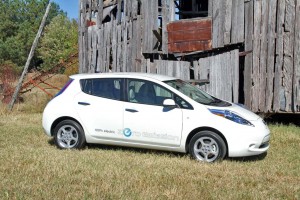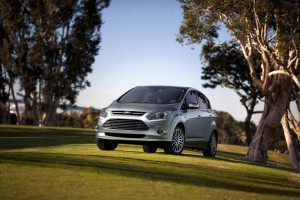
As many as one in five U.S. motorists would "likely" consider a battery car when it's time to trade in, says a new IBM study.
Conventional wisdom suggests battery power will take a long time to catch on – if ever – barring a huge energy crisis or draconian new federal rules.
Don’t tell that to American car buyers – 20% of whom claim they are “likely” or “very likely” to buy an electric vehicle when it’s time to trade in their current set of wheels, reports IBM’s Institute for Business Value. The study also finds a full 40% of buyers willing to pay a hefty premium for advanced electric propulsion technology.
Whether those optimistic findings will actually translate into better-than-expected sales remains to be seen, but a second new study, this one by Maritz Automotive Research, threatens to throw some cold water on battery car proponents. It finds a significant public “knowledge gap” when it comes to electric vehicles and other alternative propulsion systems.
“Our research indicates that over time consumers see the adoption of electric-power and other alternative power-train vehicles as an imminent reality. Yet today, low consumer familiarity and understanding of alternative fuel vehicles – including both electric only and gasoline-electric hybrids – has a cooling effect on their purchase intent,” said Dave Fish, vice president, Maritz Research.

The more consumers learn about battery cars, like the 2012 Ford C-Max Energi, the more they'll want them, claims Maritz.
Virtually every automaker is now offering or, at the least, developing some form of battery propulsion, and by mid-decade, according to various industry forecasts, at least 34 plug-in hybrid and battery-electric vehicles will be offered in the U.S. market. That number will likely double, even triple if it includes more conventional hybrid models.
Yet despite the growing availability, there’s an ongoing debate over how much of an impact these technologies will have on overall sales. Some experts predict as little as 5%, including conventional hybrids, plug-ins and BEVs. The recently-released J.D Power and Associates Drive Green study projected 7.3%. But Ford Motor Co.’s internal analysis underscores the general uncertainty by predicting a range running from as little as 10%, by 2020, all the way up to 25%.
Factors like oil prices, rising fuel economy standards and government incentives will all play a role in determining which number proves more accurate, says Ford’s global product czar, Derrick Kuzak – and that’s backed up by the new IBM study which found all those factors influencing buyer interest in battery-based vehicles.
The study indicates that, “even in these early days, there is a potentially large market for EVs.” A full one in five drivers said they are “likely” or “very likely” to consider a battery vehicle, all the more promising, said IBM researchers, “given that 42 percent of drivers know only ‘a little’ about EVs or have ‘only heard of them,’ suggesting that automakers could increase the pool of potential buyers with sustained educational campaigns.”
That echoes the findings of the new Maritz study, which concludes, “Consumers have relatively low product knowledge of electric-only and electric-hybrid vehicles and see electric technology vehicles as useful for those who do limited driving.”
Maritz Vice President Fish stressed that, “Increasing consumer knowledge will enable higher sales conversions to new drive-train technologies,” Fish said.
Of course, better knowledge can also work to the disadvantage of new technologies. Studies over the last few years have suggested a boom in the sale of conventional hybrid systems – projected demand that hasn’t shown up in real-world numbers. As consumers learn about the higher price premiums associated with hybrids and the lower benefits the vehicles often deliver that can lead many to decide to remain with more traditional gasoline-powered models.
It remains to be seen if the same thing will happen as green-minded motorists learn the real pluses and minuses of battery-electric vehicles.
